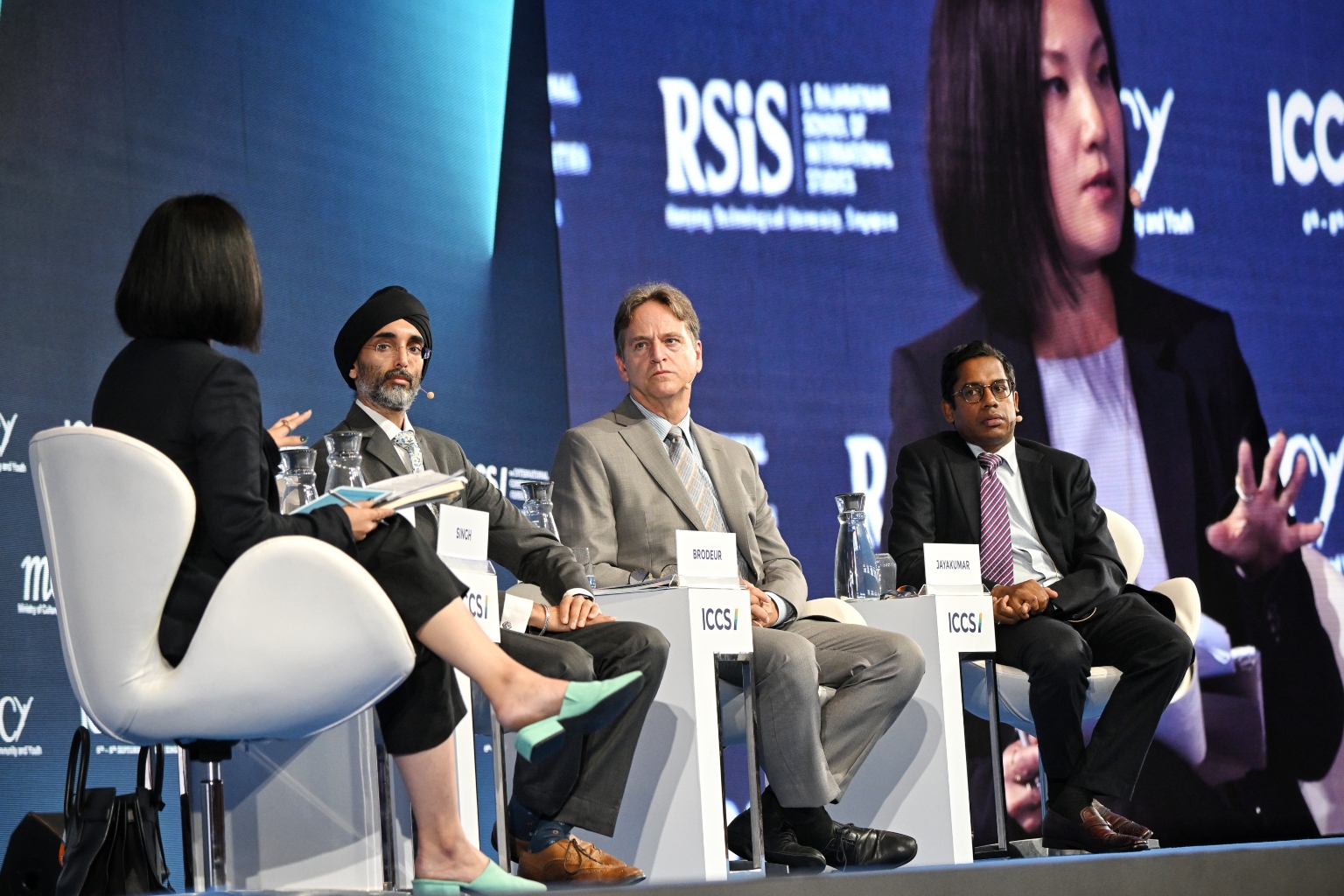Experts at interfaith conference warn of digital divide, underscore importance of connectivity
Sign up now: Get ST's newsletters delivered to your inbox

(From left) Dr Terri-Anne Teo, Mr Jasvir Singh, Associate Professor Patrice Brodeur and Dr Shashi Jayakumar speaking at the International Conference on Cohesive Societies on Sept 7.
ST PHOTO: KUA CHEE SIONG
SINGAPORE - Social media and other online platforms can promote understanding between groups in the community, said a panel of academics and community leaders on Wednesday.
But at the same time, there is also a need to be mindful about the digital divide between the technological haves and have-nots, said the panelists during a discussion on how technology can be leveraged to foster trust between groups of people.
The discussion was part of the International Conference on Cohesive Societies (ICCS) at the Raffles City Convention Centre.
The ICCS, which began on Tuesday, is a three-day event organised by the S. Rajaratnam School of International Studies (RSIS) and supported by the Ministry of Culture, Community and Youth.
The conference – with a theme Confident Identities, Connected Communities –engaged more than 800 delegates from over 40 countries in conversations around the three key pillars of faith, identity and cohesion.
Mr Jasvir Singh, founding chair of City Sikhs in Britain, said during a month-long event he organised that promoted understanding of South Asian culture, platforms such as Facebook and Instagram allowed people to participate virtually.
But not everyone had access to the discussions and events of the South Asian Heritage Month, which ran this year from July 18 to Aug 17, and one's age was also a factor, he said.
Mr Singh said he and his team had noticed that when it came to online participation for the event, those aged between 55 and 64 were engaged via YouTube, but not through social media. Those even older were not able to participate in the event at all.
"There are gaps. I would say it's less of an issue when it comes to younger people - most younger people have access to mobile phones," he said.
He and other panelists were responding to a question from Dr Terri-Anne Teo, a lecturer from Newcastle University in Britain, on this digital divide, and the risks it posed to society.
Associate Professor Patrice Brodeur from the Institute of Religious Studies at the University of Montreal in Canada noted how it is often the poorest segments of society who are the least connected digitally.
This means that these people might be more at risk of being exposed to, and internalising, extremist rhetoric, given how they might not be able to access facts and information and could thus be more easily convinced by others.
While producing better online materials to clarify any misinformation is the way to counter such radicalisation, access to them is an important consideration that must be kept in mind, noted Prof Brodeur.
To unlock this access and better educate the poorest parts of the world, basic connection to the Internet and reliable electricity are needed, said the professor.
Various parts of society have a role to play in making sure no one is left behind digitally or is manipulated by others, said Dr Shashi Jayakumar, who is head of the Centre of Excellence for National Security at the RSIS, which is part of the Nanyang Technological University.
"These skills that we once had… the ability to read, to read a text like we used to in the old days, remember? To read between the lines, the appendices and the footnotes, I think that's also quite valuable," he said.
But critical thinking, while important, is no silver bullet to combating radicalisation, said Dr Jayakumar in response to a question by Dr Teo on the matter. He noted that there have been critical thinkers overseas in the past who still became extremists.
Rather, there is also a need for a form of "compassionate agreement", where people understand that they are part of societies and communities that operate within commonly accepted limits.


